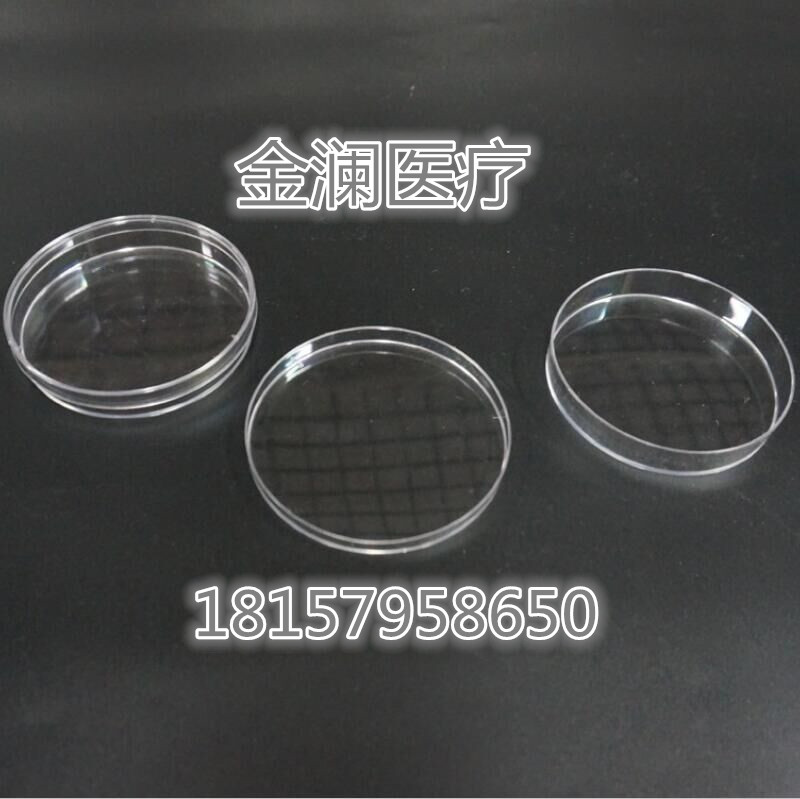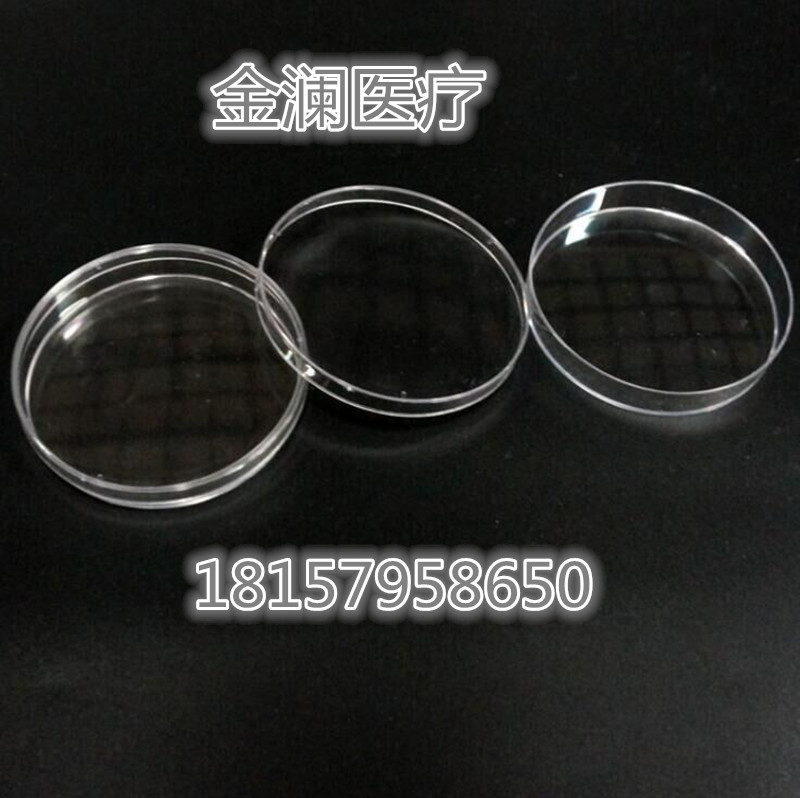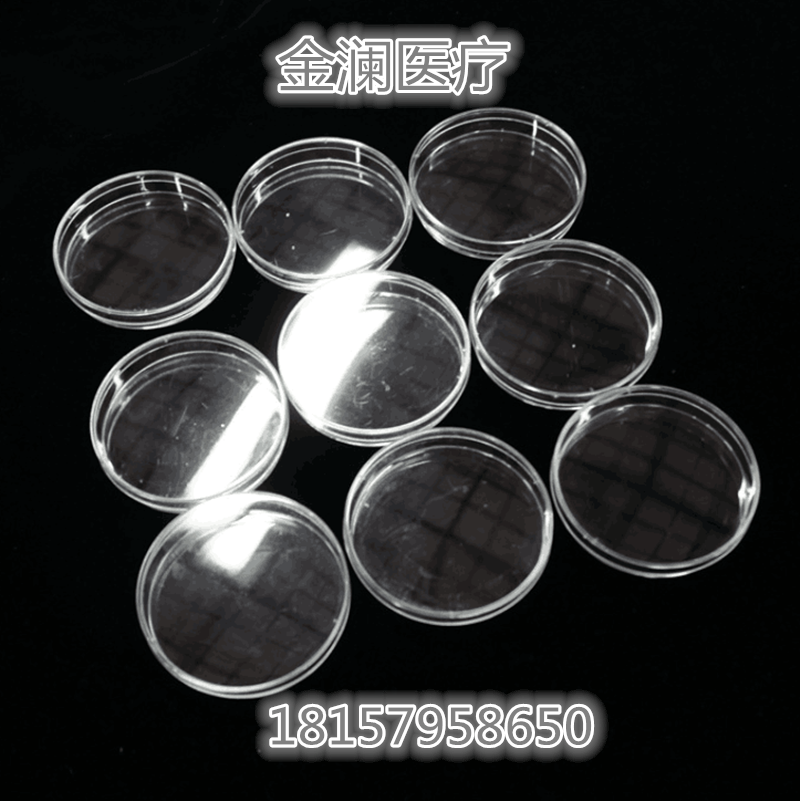


A petri dish is a laboratory dish for microbial or cell culture consisting of a flat disk-shaped base and a lid, usually made of glass or plastic. There are basically two types of dish materials, mainly plastic and glass. Glass can be used in plant materials, microbial culture and animal cell wall culture. Plastic may be of polyethylene material, have one-time and many use, suit the operation of laboratory inoculation, line, isolate bacterium, can be used for the culture of plant material.
Generally after soaking, brushing, soaking acid, and washing four steps.
Soak: new or used glassware should be soaked in water first to soften and dissolve attachments. New glassware can be simply washed with tap water and soaked overnight with 5% hydrochloric acid. Used glassware often accompanied by a lot of protein and grease, dry after not easy to brush off, so immediately after the use should be immersed in clean water ready to brush.
2. Scrub: put the soaked glassware into the detergent water and rinse it repeatedly with a soft brush. Do not leave a dead Angle, and prevent damage to the surface of the utensils finish. Wash and dry the cleaned glassware and prepare for soaking.
3. Acid soaking: acid soaking refers to soaking the above containers into the cleaning liquid, also known as the acid liquid, to remove the possible residue on the surface of the vessels through the strong oxidation of the acid liquid. Acid should not be less than 6 hours, usually overnight or longer. Be careful with the containers.
4. Rinsing: after scrubbing and pickling, the containers should be fully rinsed with water. Whether the containers are cleaned after pickling will directly affect the success or failure of cell culture. Wash the containers after soaking by hand. Each vessel should be repeatedly \"filled with water - empty\" for at least 15 times. Finally, the containers should be soaked with resteaming water for 2-3 times.




 A petri dish is a laboratory dish for microbial or cell culture consisting of a flat disk-shaped base and a lid, usually made of glass or plastic. There are basically two types of dish materials, mainly plastic and glass. Glass can be used in plant materials, microbial culture and animal cell wall culture. Plastic may be of polyethylene material, have one-time and many use, suit the operation of laboratory inoculation, line, isolate bacterium, can be used for the culture of plant material.
A petri dish is a laboratory dish for microbial or cell culture consisting of a flat disk-shaped base and a lid, usually made of glass or plastic. There are basically two types of dish materials, mainly plastic and glass. Glass can be used in plant materials, microbial culture and animal cell wall culture. Plastic may be of polyethylene material, have one-time and many use, suit the operation of laboratory inoculation, line, isolate bacterium, can be used for the culture of plant material.